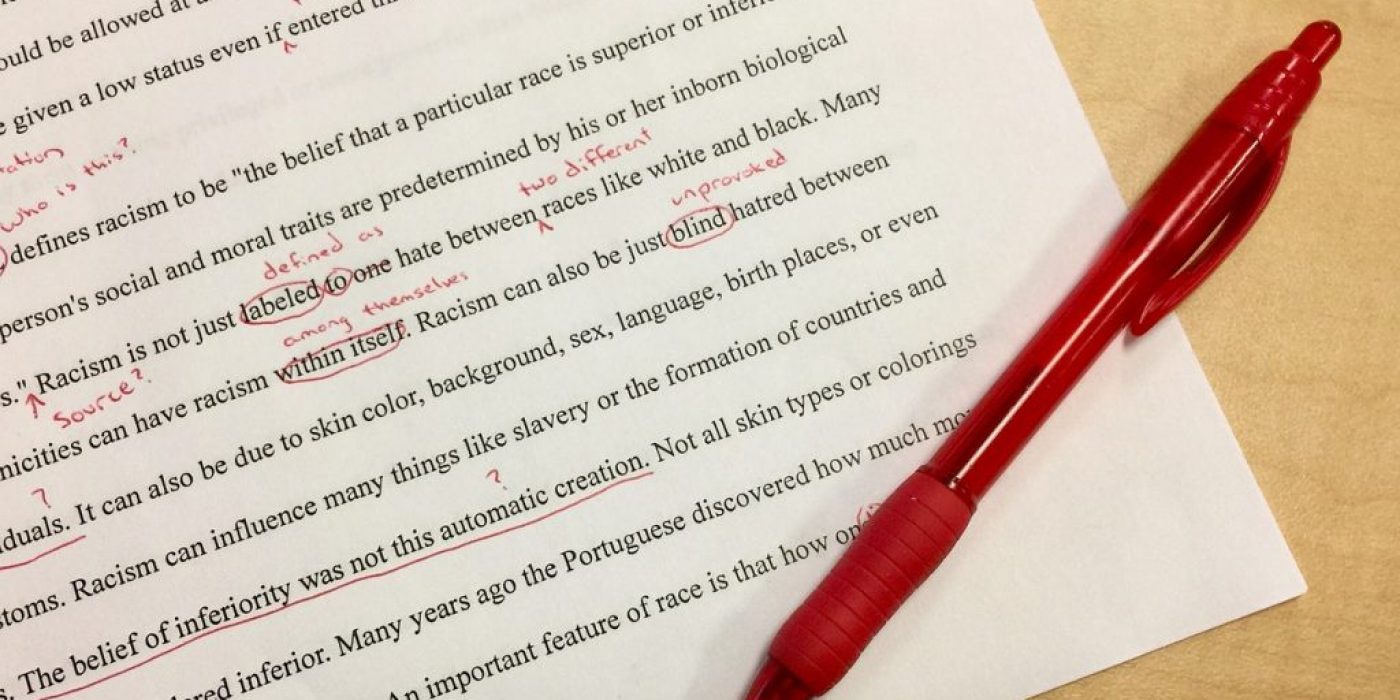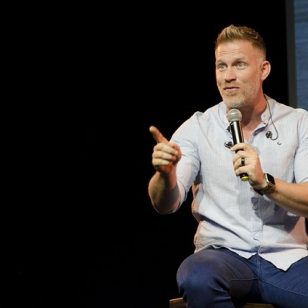By Kelsey Boudin
President and Founder, Southern Tier Communications Strategies, LLC
“Even the best writer needs a great editor,” a legendary sports editor told me, a punk intern of about 18, as he ripped apart my game story on deadline that evening. I had been working for him at the paper about a year-and-a-half before earning his guidance on stronger writing. Dozens of national and state AP awards behind his desk — to me a symbolic doctoral degree earned after decades of brilliance — reassured the much-needed surgery on my green writing.
“You write too goddamn long,” a cityside editor told me five years later. He, too, had earned a fair share of journalistic accolades. His talent? Crafting a powerful narrative in very few words. He could write a feature on a single source in 450 words, and the reader could leave knowing a life story. “A 3-minute song,” he said, “wastes no words. Neither should you.”
“This isn’t what an online reader wants to know,” a content strategist at an inbound marketing agency said as she rearranged my client blog to demonstrate industry thought leadership. Gruff and tactical, she taught while clarifying my content to be more purposeful and helpful to the client’s audience.
A Great Editor Makes Writers Shine
Every beginning writer cringes as an editor cuts and overhauls their beloved words — sometimes beyond recognition. Why wasn’t that good enough? they often think. But that’s what I wanted to say!
Too bad. An editor’s job is not to coddle fragile egos, but to hone writing (and writers) to be more effective. Their impact goes beyond correcting spelling, punctuation, grammar and style. A good editor is your writing ally, helping to optimize your words with purpose. Such lessons, learned after years of hard-earned bruises, have well served my career as an award-winning professional writer and editor.
Here’s how:
Clarity
Your words make sense to you. You wrote them, of course. But do they make sense to someone not in your head? Would someone who wasn’t there understand your news story? Would a grant reviewer from another state comprehend the local strategies described in your proposal narrative?
An editor:
- Interprets your meaning
- Amplifies key points
- Cuts fluff and redundancies
- Adds perspective
Your writing may stand well on its own without a strong editor, but could miss opportunities to refine its style and message.
Brevity
It’s easy to get wordy. If you’re on a roll with your writing, your fingers just keep churning and regurgitating whatever’s in your head. That’s fine — for a first or even second draft. An editor tightens and streamlines your words to retain meaning (and the reader’s attention).
Consider this sentence:
The GeorgeStrong Foundation, established in 2013 to address the effects of poverty and inequitable access to mental health services, continually aims to direct individuals in need to activities including cost-effective evaluation, treatment, community placement and recovery interventions.
A 37-word introductory sentence with fluff, an unnecessary adverb, redundancy, cumbersome punctuation and expositions better saved for later sentences. Sentences like these aren’t necessarily wrong. They’re found everywhere in professional writing. But let’s edit it.
The GeorgeStrong Foundation, established in 2013, addresses poverty and equity in mental health. It directs people to affordable treatment and recovery systems.
Two sentences. Twenty-two words. Comprehensible. No fluff. Easily constructed to set up what’s next. (Helpful exercise: Cut your draft in half without killing its meaning. Can you cut it by half again?)
Voice
In blogs like this, the first section is often the cliché: know your audience. That’s just your voice — what resonates most with your content consumers. While vital, it’s powerless without first addressing clarity and brevity to help comprehension.
Your voice (or tone) can be, among others:
- Academic — Explanatory and rooted in cited fact with little or no opinion.
- Conversational — Like chatting with a friend over coffee, marrying fact with opinion.
- Inspirational — Presenting accepted realities and potentials to motivate action.
- Cynical — Questioning realities, often using sarcasm to expose hypocrisy or silliness.
Your readers expect a particular voice to build credibility, affability or entertainment. A strong editor will develop your voice to address readers, listeners and viewers as they prefer.
Direction
Your editor will direct writing for effect before, during and after writing:
- Before — You will write about this subject and here’s your angle.
- During — Your writing will change alongside changing realities.
- After — We will adjust what you’ve written for effectiveness.
Writing is a fluid process. It begins with a topic, scope or dream. It evolves as the story progresses. It ends with a finished product or developing narrative. A great editor will work with you to orchestrate the storyline and coordinate resources, as needed.
Strength
Weak writing may look great on paper or screen. Any blog, news feature or project proposal could look authoritative while lacking substance.
Writing itself can be strong, with or without guidance from an editor. A great editor will, however, drive excellence from cosmetics to verbiage to structure.
Could you choose a stronger adjective or verb?
The GeorgeStrong Foundation helps individuals in need to find proactive services.
Vs.
The GeorgeStrong Foundation directs mental health services to people in need.
A fellow editor friend describes great writing as “muscular.” Writing should be muscular when appropriate. Do you assist or guide? Is a program beneficial or transformative? The differences are distinct.
Flow
You may have all your facts straight, but great writing is not only about story elements in sequence. Does your narrative stream gently from one point to the next? Do your quotes complement the accompanying narrative?
Each sentence leads to the next. Each paragraph builds your argument or narrative toward a logical conclusion. A press release serves no purpose without an easy-to-follow order of importance. A grant proposal is futile without language that builds from need to solution.
Institutional Knowledge
Chances are your editor built a successful career in your field. They may have been a reporter for 20 years or even on the factory floor of the company for which you strategize content marketing. They wield institutional knowledge too valuable to describe.
Your editor, the longtime reporter, likely knows that “squeaky wheel” at city hall. They may know firsthand the processes needed to produce your company’s line of whatchamahoozits. Such experience can guide your writing to find perspectives that may have taken years to gather by yourself.
Life Experience
I recall writing about property taxes before I had ever paid a property tax and school programs before having a child. I was smart enough to deduce how such issues affect wallets and quality education. But without life experience, my words sometimes rang hollow.
In those instances, a few great editors mentored me toward better understanding. “These folks around here are taxed enough,” one said while reviewing my analysis of a city budget proposal. “They don’t want to pay a penny more unless they know all other options to save have been exhausted.” That perspective changed the story’s direction from a budget increase paying for x, y and z to a budget increase failing to address waste elsewhere.
How Could an Experienced Editor Help You?
Do you need an editor to spruce up your website content? Or perhaps to offer direction to a chronically underperforming grant strategy? A third-party consultant who listens to your needs is a dependable resource.
Contact me at ke****@************************es.com for more information.








How to Write a Press Release: A Public Relations Guide for Beginners - Grand River Agency
August 8, 2023 @ 7:51 pm
[…] The task fell often to cub reporters. It followed me into becoming City Editor a few years later. Out of necessity. With such a small staff, someone had to tackle the onslaught of press releases via email and even a relic fax machine from the Pleistocene. To boot, many of the remaining reporters – some of them dinosaurs themselves – struggled to do an editing job justifiable for print. […]